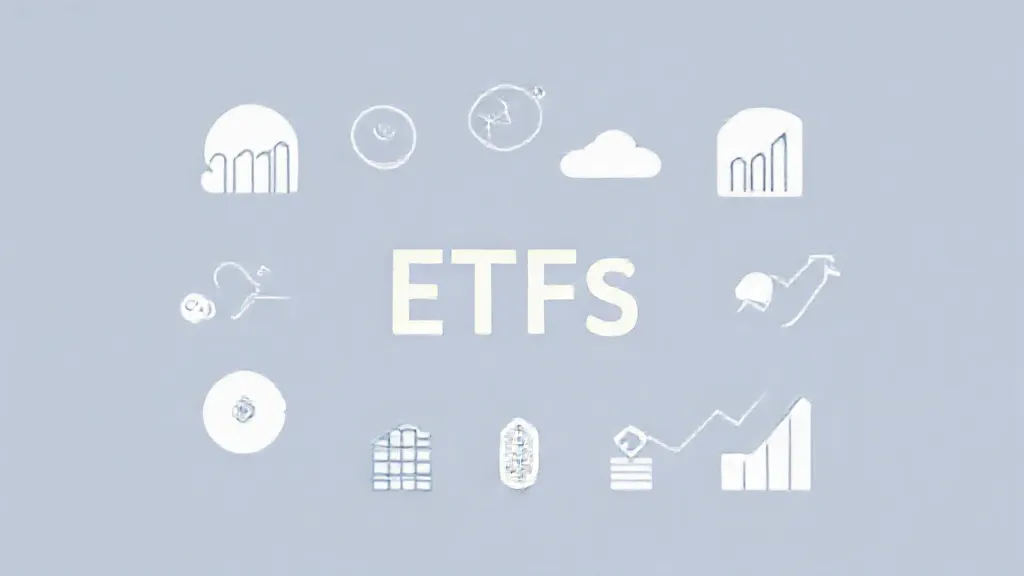Exchange-Traded Funds (ETFs) have gained immense popularity among new investors due to their unique characteristics and advantages. As investment vehicles that combine the benefits of stocks and mutual funds, ETFs offer a compelling option for those just starting their investment journey. This article delves into the reasons why ETFs are considered beginner-friendly, examining their structure, cost-effectiveness, diversification, and ease of trading.
The Structure of ETFs: A Beginner's Perspective
ETFs are investment funds that are traded on stock exchanges, much like individual stocks. They typically hold a diversified portfolio of assets, which can include stocks, bonds, commodities, or other securities. This structure allows investors to gain exposure to a wide range of assets without needing to pick individual stocks.
For beginners, this means that they can invest in a whole sector or market index with a single purchase, simplifying the investment process and reducing the complexity often associated with managing multiple individual investments.
Cost-Effectiveness: Lower Fees and Expenses
One of the most appealing aspects of ETFs for novice investors is their cost-effectiveness. ETFs generally have lower expense ratios compared to mutual funds, making them an attractive option for those who are conscious of fees.
This is particularly beneficial for beginners, as high fees can significantly erode investment returns over time. Additionally, many brokers offer commission-free trading for ETFs, further minimizing the costs associated with buying and selling these funds.
Diversification: Spreading Risk with Ease
Diversification is a fundamental principle of investing, and ETFs make it easy for beginners to achieve a well-balanced portfolio.
By investing in an ETF, individuals can gain exposure to a broad range of securities, which helps to spread risk. For example, an ETF that tracks the S&P 500 includes shares from 500 of the largest U.S.
companies. This means that even if some of the individual stocks perform poorly, the overall performance of the ETF may remain stable, thus protecting the investor's capital.
Liquidity: Easy Access to Your Investments
ETFs are known for their liquidity, allowing investors to buy and sell shares throughout the trading day at market prices.
This feature is particularly beneficial for beginners who may want to react quickly to market changes. Unlike mutual funds, which can only be traded at the end of the trading day, ETFs provide the flexibility to enter and exit positions as needed. This accessibility can help new investors feel more in control of their investments.
Transparency: Understanding What You Own
Another significant advantage of ETFs is their transparency. Most ETFs regularly disclose their holdings, allowing investors to see exactly what assets they own. This level of transparency can be reassuring for beginners who may be apprehensive about investing in complex financial products.
By knowing the underlying assets, new investors can make informed decisions and feel more confident in their investment choices.
Tax Efficiency: Keeping More of Your Returns
ETFs are often more tax-efficient than mutual funds, which is an important consideration for investors at any level. Due to their unique structure, ETFs typically incur fewer capital gains taxes, allowing investors to keep more of their returns.
For beginners, this means that they can benefit from tax savings, which can enhance overall investment performance over time.
Educational Resources: Support for New Investors
Many brokerage firms and financial institutions offer educational resources specifically designed for new investors interested in ETFs. These resources include webinars, articles, and tools that help beginners understand how to invest in ETFs effectively.
Access to such information can empower new investors to make informed decisions and build their confidence in the investment process.
Conclusion: A Solid Starting Point for Investment
In conclusion, ETFs present a beginner-friendly option for individuals looking to enter the world of investing. Their unique structure, cost-effectiveness, diversification, liquidity, transparency, tax efficiency, and availability of educational resources make them an ideal choice for new investors.
By understanding the benefits of ETFs, beginners can take their first steps toward building a successful investment portfolio with confidence and ease.
